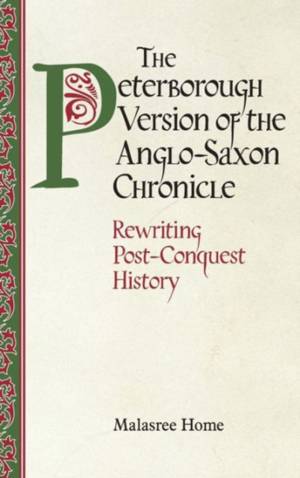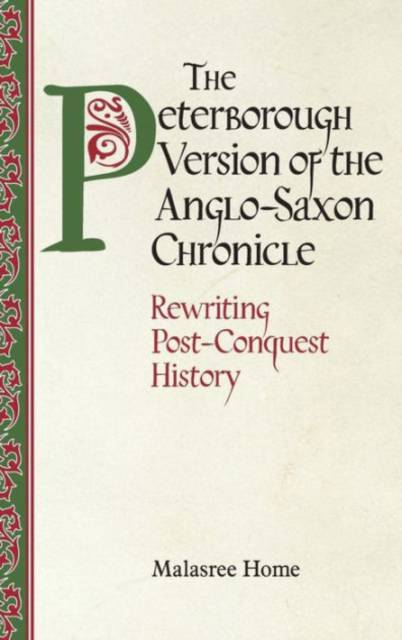
- Afhalen na 1 uur in een winkel met voorraad
- Gratis thuislevering in België vanaf € 30
- Ruim aanbod met 7 miljoen producten
- Afhalen na 1 uur in een winkel met voorraad
- Gratis thuislevering in België vanaf € 30
- Ruim aanbod met 7 miljoen producten
Zoeken
€ 177,45
+ 354 punten
Omschrijving
In the twelfth century, a version of the Anglo-Saxon Chronicle was rewritten at Peterborough Abbey, welding local history into an established framework of national events. This text has usually been regarded as an exception, a vernacular Chronicle written in a period dominated by Latin histories. This study, however, breaks new ground by considering the Peterborough Chronicle as much more than just an example of the accidental longevity of the Chronicle tradition. Close analysis reveals unique interpretations of events, and a very strong sense of communal identity, suggesting that the construction of this text was not a marginal activity, but one essential to the articulation of the abbey's image. This text also participates in a vibrant post-Conquest textual culture, in particular at Canterbury, including the writing of the bilingual F version of the Chronicle; its symbiotic relationship with a wider corpus of Latin historiography thus indicates the presence of shared sources. The incorporation of alternative generic types in the text also suggests the presence of formal hybridity, a further testament to a fluid and adaptable textual culture. Dr Malasree Home teaches at Newcastle University.
Specificaties
Betrokkenen
- Auteur(s):
- Uitgeverij:
Inhoud
- Aantal bladzijden:
- 196
- Taal:
- Engels
- Reeks:
- Reeksnummer:
- nr. 27
Eigenschappen
- Productcode (EAN):
- 9781783270019
- Verschijningsdatum:
- 19/03/2015
- Uitvoering:
- Hardcover
- Formaat:
- Genaaid
- Afmetingen:
- 156 mm x 234 mm
- Gewicht:
- 453 g

Alleen bij Standaard Boekhandel
+ 354 punten op je klantenkaart van Standaard Boekhandel
Beoordelingen
We publiceren alleen reviews die voldoen aan de voorwaarden voor reviews. Bekijk onze voorwaarden voor reviews.











